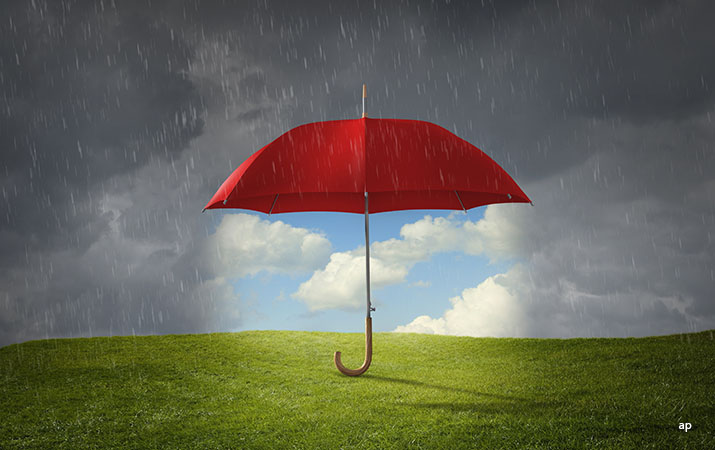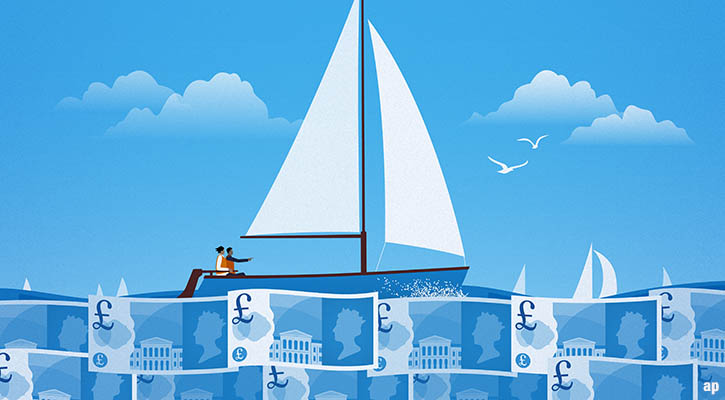
If you’re like me, you probably think you’re invincible and won’t end up in a position where you’re unable to work. Most young, healthy people do. So why bother with insurance?
Most people are aware of the basic types of insurance which protect your assets, such as your car, house or mobile phone. These are easy to understand: they protect a physical asset. But when it comes to protection for yourself and your own ability to continue working and earning a living, things can be more complicated. When do you need to get insurance and, importantly, when do you not?
There are three main types of insurance that will protect your income should anything happen to you: life insurance, critical illness cover, and income protection.
Life Insurance
Life insurance or life cover protects your next of kin or dependents – it pays out if you die. This is the most common and perhaps easiest insurance to understand as it has a straightforward structure: pay an agreed monthly sum and if you pass away within the policy term, a lump sum is paid out to your loved ones.
You should consider this insurance if you have any dependents such as a spouse or children who rely on your income to, for example, pay a mortgage. But if this doesn’t sound like you, life insurance might not be necessary; single people without dependents may not need it. That said, it is significantly cheaper to buy life insurance at a younger age so if you plan on having a family in the future, it could be worth exploring. However, it is worth checking if your employer offers death in service benefit, which pays out to your next of kin if you die – if the pay out is generous enough, you may not need life cover as well.
Critical Illness Cover
As the name suggests, critical illness cover replaces your income if you suffer a diagnosed critical illness. Like life insurance, paying a monthly fee will buy you protection against a list of specific illnesses like stroke, heart attacks or cancer, within a policy term. People often buy critical illness cover together with life insurance because while life insurance protects your loved ones in the case of your death, critical illness cover protects you while you are alive so that you can continue paying bills, loans, mortgages and medical treatments without having to worry about work.
Alan Lakey, director of CIExpert, thinks it is the most important cover to consider as anyone could become critically ill. “A critical illness that doesn’t kill you could have a substantial impact on your financial future. I believe this is the only insurance that everybody can have and should have.”
It is worth noting, however, that you do need to have an income to protect for this cover to be relevant – if don’t have an income, the insurance would probably not be a priority. Crucially, it also doesn’t cover every critical illness, so watch out for the small print. Again, it is worth checking with your employer whether you have a benefits package that pays out compensation if you fall ill.
Income Protection Insurance
While critical illness cover has a set list of illnesses it pays out against, income protection will help you cover lost earnings due to other illnesses or reasons for having to leave work. Like the previous two, agreed monthly payments protect you for a set policy length. Income protection can cover critical illnesses but can also be used for less critical ones like depression or a bad back. You can only protect a certain percentage of your salary though – if you earn £500 a week, you won’t be able to get a policy for £1,000 a week.
Lakey says this is one of the first types of insurance everyone should look at – but not everyone qualifies. Different jobs have different risk levels, from office workers at one end of the scale to those with physically demanding jobs at the other. It’s worth checking the small print on the policy too, as some will pay out if you can’t do your specific job while others will only pay out if you can’t do any job.
Complexity, underwriting demands, and a higher price often make income protection policies less appealing. But they are more likely to pay out, paying one-in-seven claims versus one- in-20 for life insurance.
Should I Get All Three?
Speaking to a financial adviser is a good idea if you’re not sure which – if any – type of cover to get. Insurance premiums can add up, particularly if you take out policies later in life, so you want to be sure you’re only buying a policy that’s relevant and likely to pay out when you need it to.
Self-employed workers may find they have a greater need for insurances, with no employer to pay out if they get sick or die. Many self-employed people are also in physically demanding roles, increasing the risk of injury.
A common misconception is that insurances are only for the affluent, but Lakey says this isn’t the case – they’re for anyone who wants help covering their basic costs if they become unable to work: “People who are relatively poor need it as much, if not more, than those who are relatively rich, who are more likely to have savings they can dip into.”
Mark Dennison at adviser firm LightBlue UK adds that as long as you have an income, income protection insurance should be considered a priority. “If you don’t have an income, it’s probably not as necessary – likewise critical illness cover – although bear in mind that if you’re living off a wealth strategy, that is also an income which could be imperilled by unexpected illness or disability.”





























